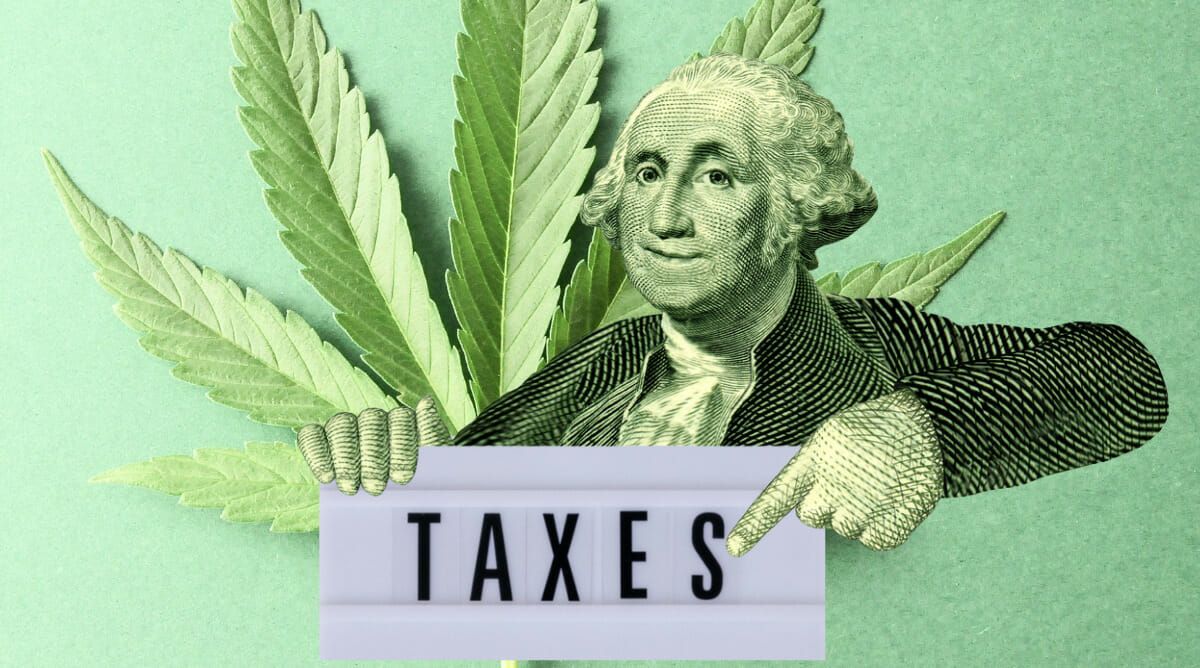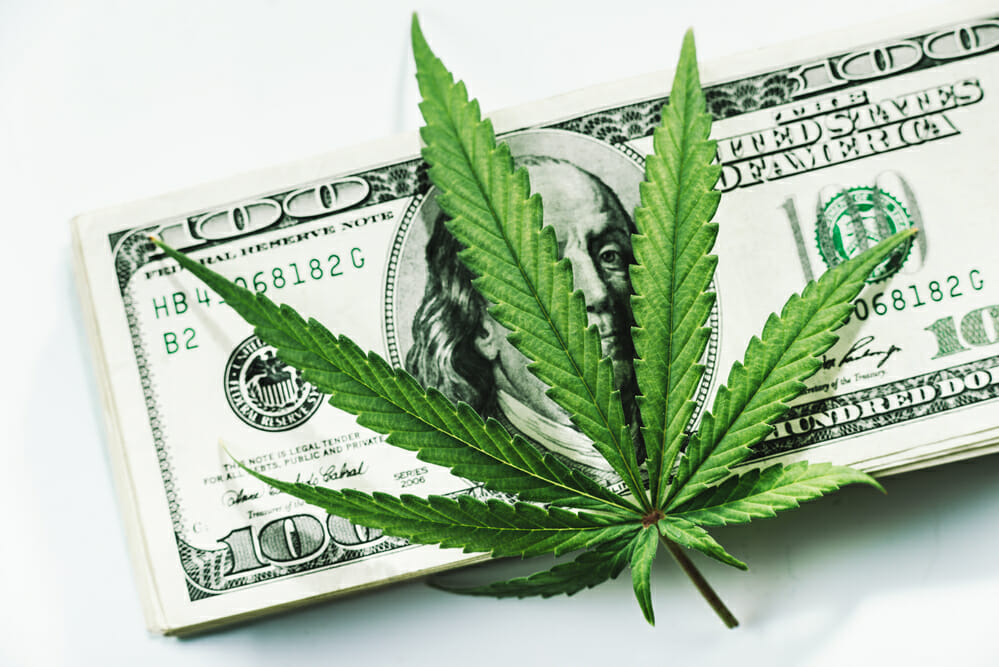
Is the opposition to federally legalized cannabis based on moral opposition? The U.S. government has been studying the impact of cannabis legalization for decades. We are about to find out whether economics and the lure of cannabis taxes will prevail in the House of Representatives and the U.S. Senate.
As of August 1, 2021, America had reached the top of the country’s debt ceiling. A maximum amount of debt legislated by Congress. The equivalent for the government, of having completely maxed out all its credit cards.
It didn’t make the first page of many media outlets because the news is negative. At a time when consumer confidence is a little fragile. The news would be worrisome to anyone who understands what hitting the debt ceiling means from an economic standpoint.
Some have estimated that the United States could collect almost $200 million per year in tax revenues from retail cannabis sales. Will the additional strain of the pandemic on the American economy make lawmakers revisit federal legalization? If not before, we may consider the government to be fiscally motivated now.
The United States was poised to make a fast economic recovery after coping with the COVID-19 health emergency. First, China surged to reopen businesses and return to pre-pandemic production. And the United States followed right after, reporting growth in major sectors.
The U.S. gross domestic product (GDP) grew 1.6% from January to April 2021. The economy grew only 1.1% in the first three months of 2020. In fact, in 2021, America leads with the highest GDP at $20.49 trillion, followed by China ($13.4 trillion), Japan ($4.97 trillion), and Germany ($4 trillion).
Unemployment rates are down. We have a world-leading GDP. So, where is all the federal debt coming from? From the year 2000 to 2019, America’s debt increased by 297%. During the year 2012, the United States rose over 100% of Debt to GDP. And in 2020, the rate of federal debt vs. GDP was over 135%.
From 1966 to 2012, the federal debt had never exceeded 100% of the GDP. The last time previous to 2008 was after World War II. From 2016 to 2020, however, federal debt held by the public grew 48%. Largely due to business shutdowns, stimulus spending, and reduced government tax revenues. Particularly from industries greatly impacted by the pandemic, like travel and tourism.
The first major increase in federal debt happened in 2008 during the last global recession. The Great Recession of 2008 resulted in a housing market collapse and many Americans foreclosing on properties that were worth less than what was owed on the mortgage.
Business bankruptcies climbed along with unemployment. It didn’t start to get better until 2009 when the Wall Street Bailout happened. That rescued banks in crisis and kickstarted financial recovery. The Emergency Economic Stabilization Act created a $700 billion Troubled Asset Relief Program (TARP). It also resulted in almost doubling the federal debt.
Each administration has added to the federal deficit, but no one has addressed the problem aggressively. And now that America has hit its debt ceiling, there are three measures: a priority a) reduced spending b) increased payments to federal debtors, and c) increasing tax revenues.
Increasing income and sales taxes during a pandemic may be risky to an economy in recovery. But finding new sources of tax revenue would be helpful. Something that would cost very little to administer but provide more tax dollars. One of those solutions could be federally taxed cannabis, including retail sales of cannabis, business licenses, and a cultivator/processor tax, as proposed in the MORE Act.

Unlike his predecessor, the former House Majority Leader Mitch McConnell, HML Chuck Schumer has no plans to block federal legalization of cannabis. He’s on record saying many times that he plans to expedite marijuana decriminalization. And make cannabis legal at the national level.
The political shift after the 2020 election placed more cannabis advocates in the House of Representatives. And with the Marijuana Opportunity Reinvestment and Expungement (MORE) Act as a roadmap, it should be easy to get the wheels rolling.
House Majority Leader Chuck Schumer has been championing the federal legalization of cannabis since 2018. And while President Joe Biden has a more conservative opinion about cannabis, Schumer has promised that the Senate will take ‘aggressive action to loosen federal restrictions, in an interview with POLITICO.
During an interview in April 2021, Chuck Schumer shared his determination to legalize cannabis at the federal level. When asked about how he would convince President Joe Biden, Schumer stated:
“I want to make my arguments to him, as many other advocates will [but] at some point, we’re going to move forward, period.”
The Cannabis Administration and Opportunity Act Replaces the MORE Act
Early in 2021, the MORE Act stalled in the Senate. And it has been sitting in administrative quicksand and unmoving for months. Since it essentially ‘timed out’ in the Senate, a new draft bill was created. One that might move more quickly through the Senate to expedite federal legalization.
The “Cannabis Administration and Opportunity Act” (CAOA) is very similar to the MORE Act, with some improvements in the draft legislation. It is a rewrite and clarifies some of the issues that Senators opposed in the MORE Act.
The new Cannabis Administration and Opportunity Act would remove cannabis entirely from the CSA (Controlled Substances Act). It would create a new definition for cannabis in the Federal Food, Drug, and Cosmetic Act. It will also preserve the current exception for hemp, which is already federally legalized.
The right for states to police the production, possession n, and distribution of cannabis and marijuana products is protected by the CAOA. Federal penalties would only apply for cannabis diversion, according to the new draft legislation. Unlawful possession by an individual might only be for 10 lbs of cannabis or more.
States are also prohibited from stopping interstate commerce of cannabis from passing through their jurisdiction to deliver products to another state. That means some states can opt to make it legal for dispensaries to import cannabis grown or manufactured in another state. That is the same legal requirement states must abide by right now with hemp products.
One of the misconceptions about the federal legalization of cannabis is that the taxable revenues will be generated only from retail dispensary sales. That’s not true. It will be cannabis touching or producing businesses that would pay the brunt of the taxes.
The draft proposes a 9% federal tax on all retail sales of cannabis. But it may only apply to recreational or adult-use sales of marijuana. Only two states currently tax prescription medication (Illinois and Georgia). The federal government may choose not to tax patients with a medical card. Or to tax patients substantially less.
The federal government would see cannabis taxed at every level of production. That includes a cultivation tax for growers. Processors would also face a volume excise tax from the federal government as well. Business licenses issued to all cannabis touching enterprises would also be federally taxed. That includes annual license renewals for every dispensary in the country. And every manufacturer.
In 2018, initial projections for cannabis taxes were as little as $150 million per year. That would make cannabis tax revenues less than proceeds from tobacco and alcohol sales. However, the rapid growth in volume sales demonstrated in 2020 has changed that projection. Investopedia projected in 2021 that the feds could see as much as $106 billion in tax revenues.
With the U.S. debt ceiling reached and the growing costs of the COVID-19 pandemic, it may be enough to get cannabis legalized by the federal government. And have cannabis taxes helping the U.S. economy sooner rather than later.
Featured Image: (Canva)
No Information on MarijuanaDoctors.Com should be used to diagnose, treat, prevent or cure any disease or condition. You can view our Full Disclaimer here.